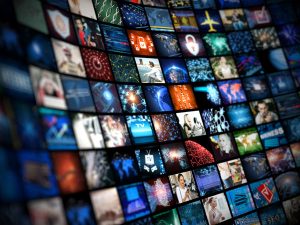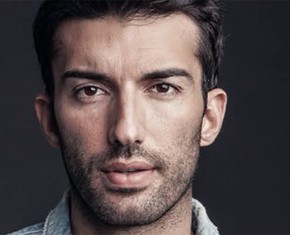The views expressed in our content reflect individual perspectives and do not represent the authoritative views of the Baha'i Faith.
Do you trust the media? Lots of people today say no—in fact, many polls show that trust in mass media has declined to an all-time low.
In just one poll among many around the world, the Gallup Organization regularly asks Americans how much they trust the mass media. Here’s the question: “In general, how much trust and confidence do you have in the mass media—such as newspapers, TV and radio—when it comes to reporting the news fully, accurately and fairly—a great deal, a fair amount, not very much, or none at all?”
Gallup measured an all-time high in trust levels in 1976:
Over the history of the entire trend, Americans’ trust and confidence hit its highest point in 1976, at 72%, in the wake of widely lauded examples of investigative journalism regarding Vietnam and the Watergate scandal. After staying in the low to mid-50s through the late 1990s and into the early years of the new century, Americans’ trust in the media has fallen slowly and steadily. It has consistently been below a majority level since 2007. – Art Swift, The Gallup Organization, September 14, 2016.
In late 2016, slightly less than a third of Americans—32%–said they had a great deal or a fair amount of confidence in the mass media, the lowest percentage Gallup has ever measured.
 People have many different reasons for their lack of trust: that the media is biased towards this or that point of view; that it’s frivolous and obsessive; that it’s dishonest, or that it’s in the pocket of an unaccountable corporate elite. As a result, more people get their news from alternative media outlets that appeal to a very limited audience, rather than ones that broadly appeal to the general public. In the past, everyone followed a handful of newspapers or television channels, but now social media enables people to share and connect with sources that don’t try to speak to everyone, but cater to a narrow spectrum of social or political views.
People have many different reasons for their lack of trust: that the media is biased towards this or that point of view; that it’s frivolous and obsessive; that it’s dishonest, or that it’s in the pocket of an unaccountable corporate elite. As a result, more people get their news from alternative media outlets that appeal to a very limited audience, rather than ones that broadly appeal to the general public. In the past, everyone followed a handful of newspapers or television channels, but now social media enables people to share and connect with sources that don’t try to speak to everyone, but cater to a narrow spectrum of social or political views.
That trend means we’re not all seeing the same information. One news source will push one set of facts and pseudo-facts. Another news source with a different ideological bent will push another set of facts and pseudo-facts. On top of that, some outlets actually promote heavy doses of lies to increase their viewership or pursue a political agenda.
As a result of all this, mass media now serves less as a mediator between all the members of society. If the traditional image of community is a circle of people looking in towards each other and towards a common center, then the emerging reality is a circle of people facing outward, with their backs to each other, each engaging with their own very divergent picture of the world.
The principles of the Baha’i Faith offer vital remedies for this problem. Abdu’l-Baha would often list two of those principles first whenever he gave a general introduction to the Baha’i teachings. Here they are: a consciousness of the oneness of humanity; and the independent investigation of reality.
When people practice these two spiritual and social teachings simultaneously, their benefits feed off of each other, and enhance the capacity of the media to contribute to the well-being of society. Let’s start with consciousness of the oneness of humanity:
Since We have created you all from one same substance it is incumbent on you to be even as one soul, to walk with the same feet, eat with the same mouth and dwell in the same land, that from your inmost being, by your deeds and actions, the signs of oneness and the essence of detachment may be made manifest. – Baha’u’llah, The Hidden Words, p. 20.
We can easily distinguish modern societies from older kinds of societies by the sheer magnitude of their populations. Most of us live in nations or even urban areas with many millions of people. As we go about our daily routine, many of us normally see hundreds if not thousands of people, even if we don’t directly interact with each and every one of them. For this reason, we all have to work harder to build social cohesion purely on the basis of personal relationships between individuals and community leaders.
Ideally, the media helps bridge the gaps between the great mass of people that make up a modern society, providing a common base of content that all or most people are familiar with and can assume other people are familiar with. The media presents us with artists, entertainers, influencers, and social and political commentators that help form our cultural understanding. News broadcasts provide information and stories that fuel public conversation. We all gather around the media’s virtual table.
That’s why, when people turn away from “the mainstream media,” it further fractures the unity of society. We cannot, in good conscience, give up on them, because the mass media gives modern cultures a semblance of unity and cohesion. Look at it this way: at least the mainstream media enables us to get into one common argument, rather than a thousand disconnected ones.
If we don’t like the way the mainstream media mediates between us, then our focus should shift to how we can establish new or reform existing media outlets with the goal of uniting us around constructive and uplifting endeavors. You can see glimmerings of that in the media sometimes. We don’t have to revolutionize society to make that possible. However, we might need to revolutionize the ideas that inform our thoughts and actions for such an approach to become the norm rather than the exception.
All of this means accepting the recognition that we are all essentially one, which can bring about the kind of transformation our lives and our societies need. The power of that principle is augmented and expanded when we combine it with the practice of another core Baha’i principle, the independent investigation of reality—which we’ll explore in the next piece in this series.
You May Also Like
Comments

















The ever-advancing civilization is itself a story with innumerable sub-plots. Events shouldn't be interpreted solely in relation to that framework. But it does help us decide which pieces of information are important and which are not. Sometimes, in the news I can see an over-arching narrative. And I will disagree with it to some extent or another. Then there are other ...times it seems like some things don't fit into any kind of coherent perspective on the world, and just seem to be a way to grab attention.